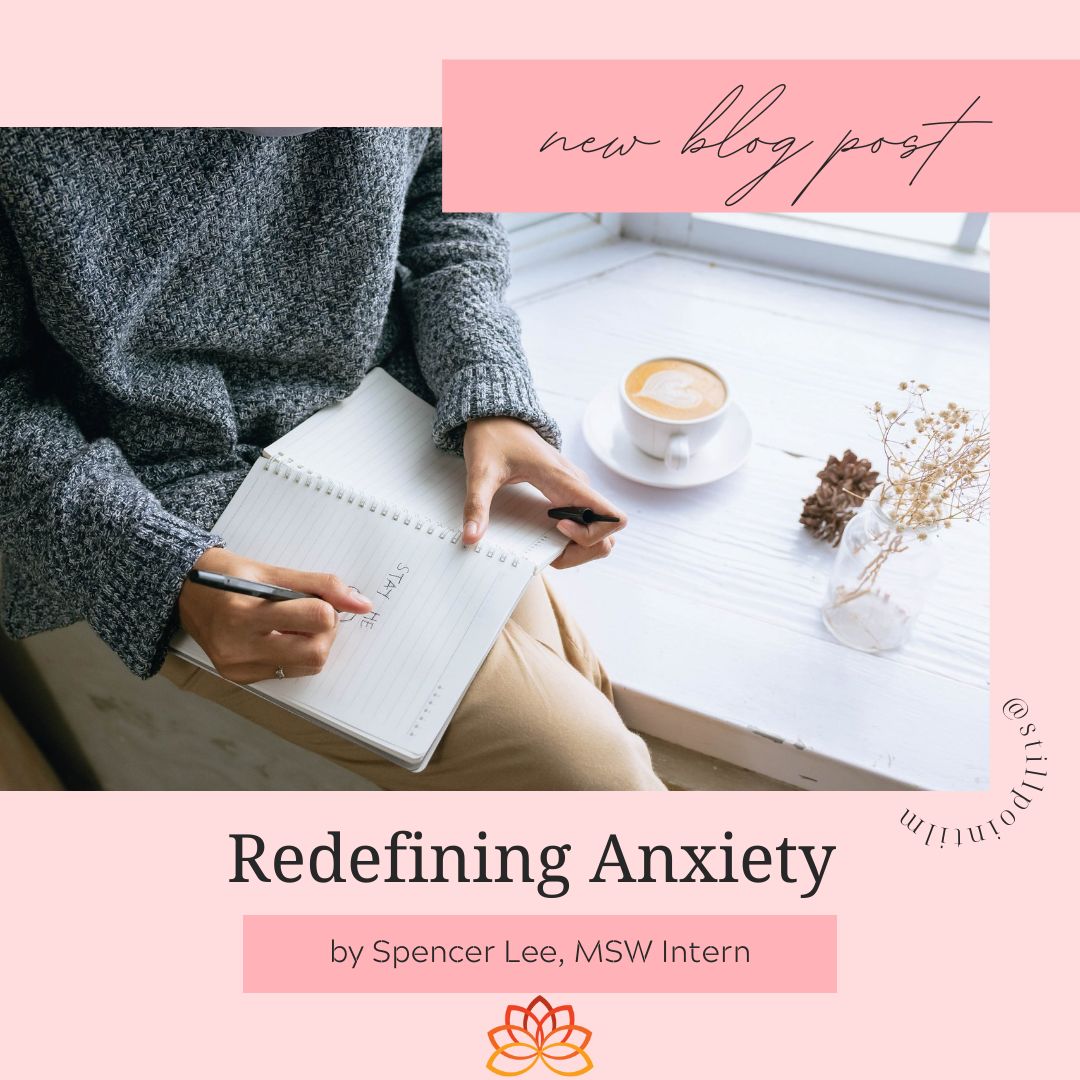Redefining Anxiety
by Spencer Lee, MSW Intern
When you hear the word “anxiety”, what happens next? Do you feel a sense of dread? Does your heart skip a beat? Do you remember a specific time you experienced anxiety? Do you feel embarrassed from maybe having had anxiety before? Maybe you’re so used to the word or the feeling that you don’t think very much of it.
The first definition of anxiety that pops up on google reads, “a feeling of fear, dread, and uneasiness that may cause you to sweat, feel restless, and have a rapid heartbeat”. Geez, that sounds awful. And don’t get me wrong, experiencing anxiety can feel awful at times. But what about the times where it doesn’t feel bad?
Has anxiety ever helped you before? I’m sure your immediate thought is “Heck no!”. But take a minute and really think; think of the ways anxiety has been present without causing distress. Here are just a few ways I’ve found anxiety to be helpful:
-
Anxiety is motivating- If we never experienced anxiety, we would likely get little done in life. Anxiety can help energize us to accomplish tasks and perform to the best of our ability.
-
Anxiety can increase our insight- One of the things that often accompanies anxiety is thinking about the past and future. Moderate levels of this thinking can help us build insight about the past and decide on new ways we’d like to engage in the future. It allows us to plan ahead with the knowledge of learned experiences.
-
Anxiety is our personal protector- Anxiety is our internal alarm system and it can tell us when we should be more aware or on guard in an effort to protect ourselves. Anxiety’s number one goal is to keep us safe!
On a physiological level, anxiety and excitement are very similar. Our hearts beat faster, we get a little fidgety, feel butterflies in our stomachs, and maybe even start to sweat. Cognitively, anxiety is typically connected to fear whereas excitement is connected to joy.
The good news is that we have some control over our cognitions. We are capable of changing the negative association that comes with anxiety to a more positive one. We can redefine our relationship with anxiety and that starts with changing our outlook. Anxiety can be more than a distressful, dread-filled emotion. We can find ways to manage it and make it work to our advantage. Seeing the bright side of anxiety is a good start!
Stillpoint’s intern, Spencer Lee, will be hosting a CBT-based group therapy for middle school-aged girls to help them identify and replace negative thoughts that contribute to anxiety and low self-esteem. Group members can expect to learn coping mechanisms for anxiety, develop healthier thinking patterns, and build relationships with peers in the group.
The weekly group will last 8 sessions and begin January 25th. We have 2 spots left and the cost is $25 per person for all 8 weeks. To learn more about the group, email intern@
